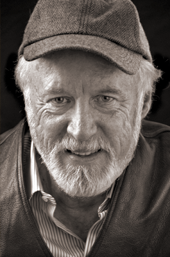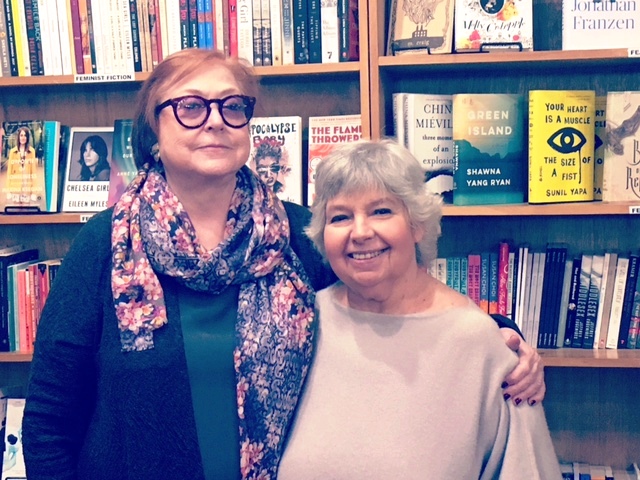Speaking yesterday at the International Publishers Association Congress in London, Arnaud Nourry, chairman and CEO of Hachette Livre, parent company of the Hachette Book Group, struck an optimistic tone about the book industry, noting that Hachette was born in 1826 and parts of it date back even earlier. Perhaps only the wine and food industries are led by companies older than Hachette, he said.
 |
| Arnaud Nourry |
"The process of making wine remains basically the same since the Romans started producing it: the search for a soil, a climate and grapes, and the technique of transforming grape juice into a sophisticated beverage have remained unchanged," he continued. The book business is similar in many ways: "The search for a text, a meeting between the creator and a publisher, and then the hard work of transforming the raw material into a readable project and object haven't changed much, either."
But, he went on, "Nobody is asking questions about the future of wine, so why can't we stop agonizing about the future of books?"
Books, he said, have "proven, again and again, their staying power in the face of the social, economic and technological transformations that have affected the world since books were invented more than 500 years ago and particularly in the last 10 years." He added that the "only other unsurpassed human artifact I can think of that goes back further than the book is the wheel. Or perhaps the spoon. Is anyone organizing conventions about the future of spoons and wheels?"
In the modern digital age, books are all the more important, he continued, because they "are not about communicating." Nourry explained: books' "indifference to the reactions they produce is precisely what makes them so precious in an online world where no statement or opinion goes unchallenged. E-mails and tweets, no matter how personal or viral when sent and read, are very quickly forgotten, driven into oblivion by a new fad or a new wave of controversy."
By contrast, books can "linger in a reader's mind for decades" and can be relied on in a way few other works can be.
Nourry noted the widespread predictions of the demise of the printed book made "as recently as five years ago," and said that e-books now account for about 10% of overall Hachette sales and 20%-25% of sales in the U.S. and U.K. That percentage is shrinking because of the leveling out of the base of e-reading devices; the end of the heavy discounting period, which he called "the e-books bubble"; and "the lack of high enough perceived added value for readers beyond the price point."
He said he believed the book industry is the only media industry to have "successfully ridden the first digital wave." As for future digital change, he predicted that "the best is yet to come," particularly in digital education, where publishers are "best positioned" to move that business forward. In print on demand, too, book publishing hasn't reached its full potential.
Still, Nourry noted "serious clouds on the horizon," particularly the European Commission's "senseless attack on copyright." If it offers "vast exceptions" to copyright law to "libraries, for education, for fair use," then the European Commission could dramatically hurt publishers and make for a major change in threats.
"We all have some problems with Amazon," he said, "but all things considered, I would say that Google is the player the most likely to pose a clear and present danger to our industry. By now, the millions of books they have scanned without our consent make up the world's largest virtual library. If the European Commission caves in to the demands of their proxies, what's to stop them from defining themselves as a library and making all those books available for free on a non-profit basis?"
Nourry also expressed concern about new IPA member China, "where some disturbing developments have been taking place recently," apparently referring in part to the kidnapping last year of five Hong Kong publisher-booksellers who published and sold books critical of the Chinese government and Communist Party.
He concluded, "Books have always been at the forefront of the battle for freedom, democracy and progress, and throughout history, many governments has been tempted to suppress or exploit them. Which is why we publishers must, more than ever, make sure our voice is being heard, for we do not speak only for our industry. We speak for authors and their work, and that huge responsibility is what sets the business of publishing apart from all there is and makes it so special." --John Mutter








SHELFAWARENESS.0213.S4.DIFFICULTTOPICSWEBINAR.gif)







SHELFAWARENESS.0213.T3.DIFFICULTTOPICSWEBINAR.gif)


 Hachette Book Group and Kadokawa Corporation, a major Japanese publisher, are creating a new venture that will join Hachette's Yen Press imprint with Kadokawa. Kadokawa will own 51% of the joint venture and Hachette 49%. The agreement is expected to close by the end of the month, at which time Yen Press will become Yen Press LLC.
Hachette Book Group and Kadokawa Corporation, a major Japanese publisher, are creating a new venture that will join Hachette's Yen Press imprint with Kadokawa. Kadokawa will own 51% of the joint venture and Hachette 49%. The agreement is expected to close by the end of the month, at which time Yen Press will become Yen Press LLC. Last week, at the New York City launch of her new book, Dear Princess Grace, Dear Betty: The Memoir of a Romantic Feminist (Schaffner Press), at
Last week, at the New York City launch of her new book, Dear Princess Grace, Dear Betty: The Memoir of a Romantic Feminist (Schaffner Press), at  "Road-trip-worthy" Boonsboro, Md., has "small-town flair" worthy of a spring drive "to a town that's also the
"Road-trip-worthy" Boonsboro, Md., has "small-town flair" worthy of a spring drive "to a town that's also the  Nice coincidental timing: on the eve of the London Book Fair,
Nice coincidental timing: on the eve of the London Book Fair,  Death Is Stupid
Death Is Stupid In novels like Underworld and White Noise, Don DeLillo has served as a kind of literary sentinel, on the lookout for intelligence to carry back from the borderlands of our civilization. Zero K, his 17th novel--a serious reflection on the subject of cryonics--is an equally unsettling dispatch from that shadowy zone.
In novels like Underworld and White Noise, Don DeLillo has served as a kind of literary sentinel, on the lookout for intelligence to carry back from the borderlands of our civilization. Zero K, his 17th novel--a serious reflection on the subject of cryonics--is an equally unsettling dispatch from that shadowy zone.